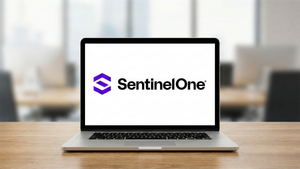Financial News
Mosaic Is Ready For Profit Harvesting

In terms of quantity and price, the United States has historically been among the top exporters of agricultural products. The current position of the United States in the international arena has been threatened in recent decades by rising competition from nations like Argentina and Brazil. Breaking down values and export share of crops coming from the United States, the top five commodity groups exported included: Corn, Soybean Products, Cotton, Wheat Products, and Tree Nuts representing 38% of the total United States agricultural exports.
Despite being the major exporter of these and other commodities, the United States has faced increasing pressure from other countries - namely Brazil and Argentina - in these export segments. Ideally, for those investors looking to gain exposure to the global food supply sustainment and growth space, a company that is entrenched in both the Brazilian and American markets will provide the established volume structure for earnings as well as a tailwind for growing said earnings.
More importantly, for investors looking for exposure, commodity-dependent businesses tend to have aggressive swings in earnings and cash flows, which can result in high and low levels of debt, making long-term investment more painful than it needs to be. A company that provides the gateway materials necessary for growing and exporting crops can be the perfect spot to play the global food supply markets, specifically a company that operates in the phosphate and potash space, which is necessary to sustain crops through changing climate conditions, maintain the seasonality and health of crops, and upkeep their underlying quality.
Suspect Fits the Description
The Mosaic Company (NYSE: MOS) may be just what these investors are looking for in terms of gaining exposure to the global food supply tailwinds. Luckily for investors, this company operates in the United States just as well as in Brazil, thus providing that steady volume profile and growth potential among fertilizer stocks.
According to their latest annual report, Mosaic represents 69% of the total North American annual production of concentrated phosphate crop nutrients, 35% of North American annual potash production and a whopping 72% and 93% of Brazilian production of phosphate crop nutrients and annual potash production respectively.
Not only are these impressive market share levels, the company also derives a third of its revenue from phosphate, another 43% from fertilizer products and another 27% from potash. This revenue breakdown, along with geographical balancing, provides the perfect storm to ride the tailwind demand for growing food supply needs along with needs for a more efficient crop yield process.
Kicking the Tires
With plenty of competition out there, such as CF Industries (NYSE: CF) and FMC Corporation (NYSE: FMC), what can make Mosaic the right choice for those investors looking for a high-quality business driving upside potential?
Revenues have grown 42.3% and 54.8% during 2021 and 2022, respectively. That does not seem too special, knowing that most companies saw massive growth once global economies opened up post-pandemic. What makes these statistics important is the fact that the pre- and post-pandemic growth posted by Mosaic was in the 100% plus range. Most companies, including competitors, are still having a hard time posting high single-digit growth on a pre- and post-pandemic perspective.
Margins have also expanded to their highest levels in a six-year lookback period. Gross margins stood at 30.1%, compared to a pre-pandemic level of 15.6%. Operating and net margins were 25% and 18.7%, respectively, compared to pre-pandemic levels of 9.7% and 7.7% for operating and net margins, respectively.
All of this attractive profitability and growth came without adversely affecting the balance sheet. In fact, it made it even stronger. With enough liquidity to pay any current liabilities for more than a year, a debt-to-total-capital percentage of 22.9%, and return-on-total-capital metrics above 20%, this company is starting to check off boxes for value investors. A measure of operational quality and product preference is the gross profits-to-total-assets ratio, where a reading above 20% is preferable for product-based companies. Mosaic closed 2022 with a 24.6% ratio, thus translating their high market share in the United States and Brazil into more quantitative terms.
Prime Quality at a Discount
Analysts are pointing to 28% upside in this stock, and investors should know the drivers behind these targets. While Mosaic is having a record-breaking year, and some think that it is a fluke not to be repeated, industry and demand dynamics point to a 2023 full of the same tailwinds at play.
The stock is currently trading at a price-to-earnings ratio of 4.3x (which is cheap by all means). Elevated free cash flow levels have allowed management to increase the dividend to $0.80 per share, which yields near 2% at these levels. Furthermore, these free cash flow levels have allowed for share buybacks. In 2022, Mosaic bought back close to 26 million shares in the open market and plans to buy even more in 2023.
Why would management be buying so aggressively? Well, in terms of "basement value" or what company components should be selling for, Mosaic is providing an even further discount. Assets net of outstanding debt, or net asset value (NAV) per share, currently stands at $55.50. These values are quite robust, given that most of the assets in the company are made up of inventory (which is not a highly fluctuating item in this case) and property (also viewed as turnkey in the event of liquidation, so there is not a lot of downside).
More News
View More




Recent Quotes
View MoreQuotes delayed at least 20 minutes.
By accessing this page, you agree to the Privacy Policy and Terms Of Service.



